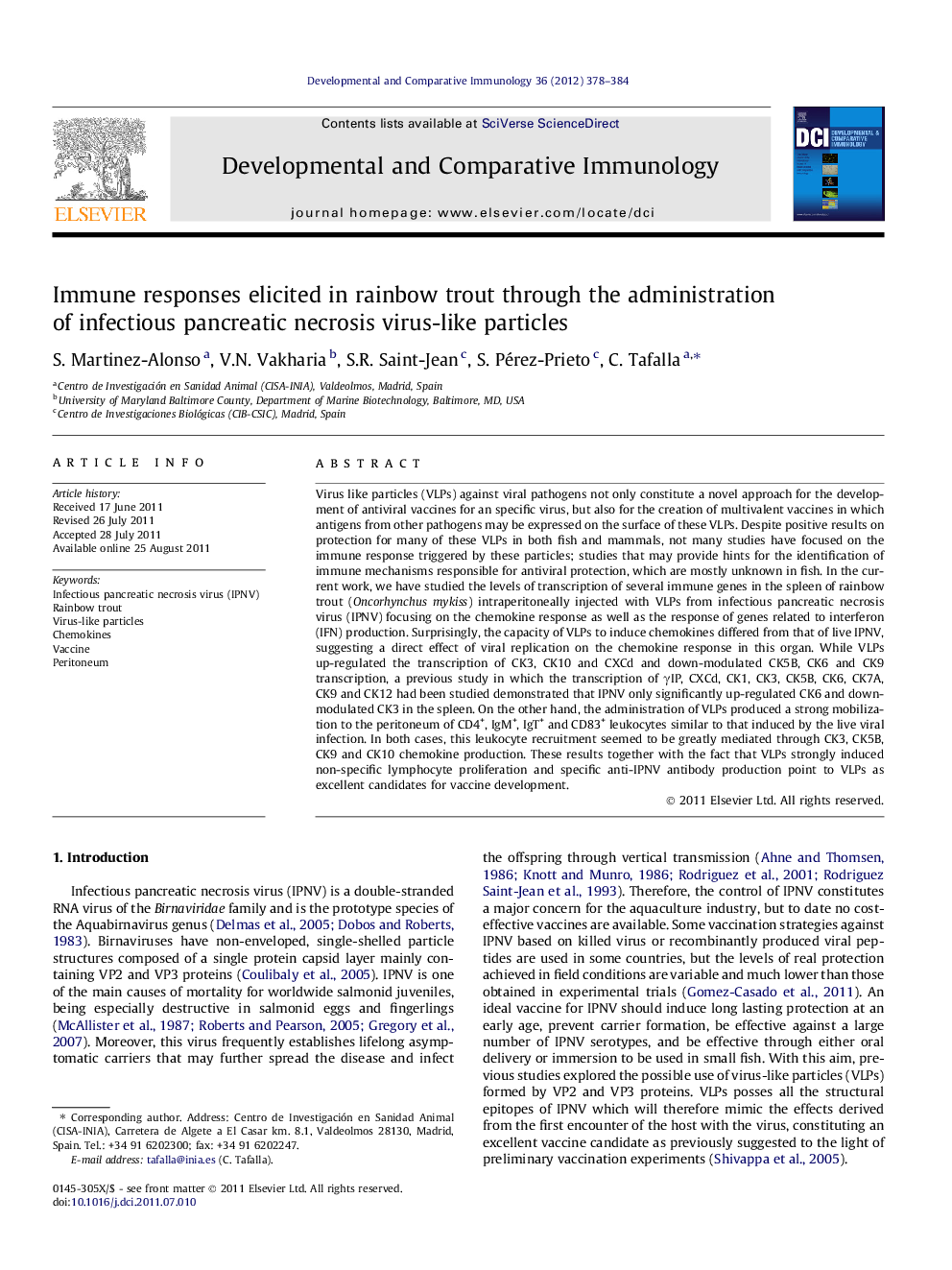| Article ID | Journal | Published Year | Pages | File Type |
|---|---|---|---|---|
| 2429611 | Developmental & Comparative Immunology | 2012 | 7 Pages |
Virus like particles (VLPs) against viral pathogens not only constitute a novel approach for the development of antiviral vaccines for an specific virus, but also for the creation of multivalent vaccines in which antigens from other pathogens may be expressed on the surface of these VLPs. Despite positive results on protection for many of these VLPs in both fish and mammals, not many studies have focused on the immune response triggered by these particles; studies that may provide hints for the identification of immune mechanisms responsible for antiviral protection, which are mostly unknown in fish. In the current work, we have studied the levels of transcription of several immune genes in the spleen of rainbow trout (Oncorhynchus mykiss) intraperitoneally injected with VLPs from infectious pancreatic necrosis virus (IPNV) focusing on the chemokine response as well as the response of genes related to interferon (IFN) production. Surprisingly, the capacity of VLPs to induce chemokines differed from that of live IPNV, suggesting a direct effect of viral replication on the chemokine response in this organ. While VLPs up-regulated the transcription of CK3, CK10 and CXCd and down-modulated CK5B, CK6 and CK9 transcription, a previous study in which the transcription of γIP, CXCd, CK1, CK3, CK5B, CK6, CK7A, CK9 and CK12 had been studied demonstrated that IPNV only significantly up-regulated CK6 and down-modulated CK3 in the spleen. On the other hand, the administration of VLPs produced a strong mobilization to the peritoneum of CD4+, IgM+, IgT+ and CD83+ leukocytes similar to that induced by the live viral infection. In both cases, this leukocyte recruitment seemed to be greatly mediated through CK3, CK5B, CK9 and CK10 chemokine production. These results together with the fact that VLPs strongly induced non-specific lymphocyte proliferation and specific anti-IPNV antibody production point to VLPs as excellent candidates for vaccine development.
► The administration of IPNV VLPs strongly modulates the chemokine transcription in the spleen. ► VLPs induce non-specific lymphocyte proliferation and specific antibody production. ► VLPs produce a strong mobilization to the peritoneum of CD4+, IgM+, IgT+ and CD83+. ► This leukocyte recruitment seems to be mediated through CK3, CK5B, CK9 and CK10.
